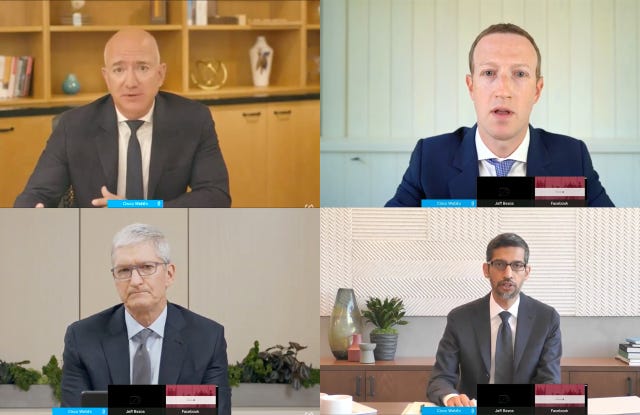Welcome to issue #5 of Product Fundamentals.
Understanding how to have effective meetings is likely one of the most important skills PMs at all levels need to learn to thrive at work. It also happens to be one of the most difficult to get right.

Source:WWD
This is going to be a long one. Let’s go!
What is an “effective” meeting?
Brings a thoughtfully selected group of people together for a specific purpose
Provides a forum for open discussion and healthy debate
Delivers a tangible result: a decision, a plan, a list of great ideas to pursue, a shared understanding of the work ahead.
Types of Meetings
There are many types of meetings:
Process meetings (Quarterly business reviews, board meetings)
Escalation/crisis
Learning sessions
1:1
Team organization (offsite, staff meetings)
Status updates, weekly standups, etc.
When to NOT have a meeting
Meetings have earned a bad reputation as a time suck. Most people confuse the core purpose of a meeting as an opportunity to share information.
Avoid meetings:
When the decision is clear and obvious
In straightforward, reversible decisions
When an email would suffice

❌

❌
I disagree. The worst thing you can do is waste everyone’s time meandering towards the problem rather than a solution. If you don’t know what to do, spend time thinking about the problem.
Meeting structure >>> meeting agenda

Meeting Agenda- set of well thought out, hard, and pertinent questions that you need to be answered through the meeting.
Questions as meeting agendas can get everyone on the same page. Loosely worded meeting agendas can be easily misinterpreted.
The Q&A technique also makes it is easier to figure out your invite list: it’s the people who can help answer the questions! It also has a more clear result: End the meeting when the questions have been answered!
Examples of Good vs Bad agenda:Bad: “Cost improvement”.Good:“How will we reduce our spending by 100K by the end of the fiscal year”
Bad:“Kicking off Roadmap Planning”.Good:What are the key market threat we need to be aware of, how could it affect us, and what can we do about it?”
Bad:“Team Updates”.Good:“What do each of you have to share or need from one another?”
Pro Tip 1: Ask the hard questions at the beginning of the meeting. Ensure the mental energy is spent on the most important challenges at hand.
Pro Tip 2: Make sure you collect viewpoints and arguments on all sides of an issue. Play the devil’s advocate when needed.
Attendees
Determining the right attendees is super important to the success of a meeting
Meetings are expensive. You can do a quick calculation of how much it costs to bring together people in a room.
Picking attendees based on the roles they play is one way of doing it- Know who are key decision-makers, influencers, and stakeholders.
Ensure that non-attendees feel included. Ask for their input before the meeting. Promise to share updates.
Pro Tip: Consider timed agendas, in which attendees join only the portions of the meeting relavent to them.
Other Tips
Strategically select a date and time
Early in the day for mentally intensive meetings
Mondays are usually too busy, Mid-week tend to be best, Fridays are usually less productive for most
Avoid scheduling your meeting during someone else’s lunch hour, or when they would typically be winding up their day
Start meetings ON time!
At companies with more than 250 people, nearly 40% of meetings start late
Waiting for someone to get to a meeting while looking at the clock run down to 18 minutes is frustrating.
I avoid waiting beyond a minute or two. By that time I have started with those who chose to be there or reach out to the person asking their plans on attending.
Use video in your Zoom calls! People faze out on audio calls. Yes, zoom fatigue is a real thing but it’s a symptom, not the root cause.
As a rule of thumb, big group meetings should talk about “bigger” decisions and smaller groups are suited to smaller decisions.
Good ideas can come from anywhere. Enable them. Keep an open-door policy. Make your calendar public to your team.
Get to the point fast. No monologues, please.
Have opinions. Better yet back up opinions with data.
Pro Tip: Try this meeting cost calculator from Harvard Business Review next time you’re planning a meeting. It’ll make you think twice about your attendee list!
How Pros do it
Marrissa Mayer discourages using the phrase “I like” in design meetings, such as “I like the way the screen looks.” Instead, she encourages such comments as “The experimentation on the site shows that his design performed 10% better.”
Tips from the guru Jeff Weiner
That’s it! Hope this provided some practical knowledge you can apply to your meetings. If you liked the article, please tell me about it! Tweet me @rkar_




